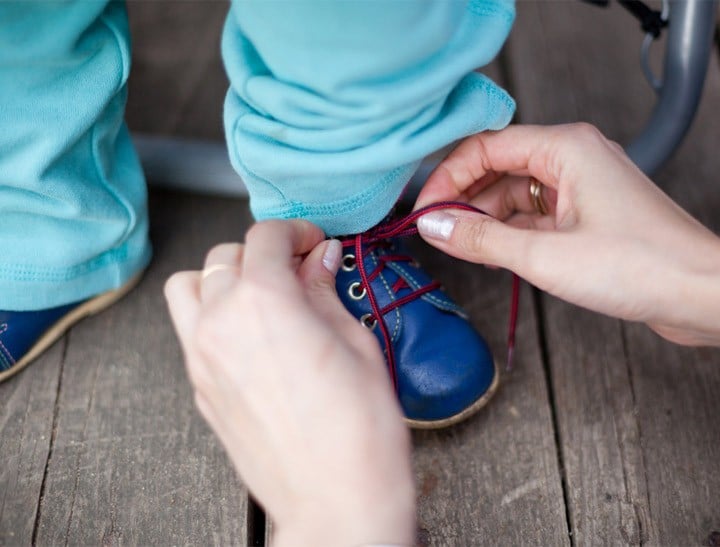
Three years ago, I was 41. I had two sons, aged 7 and 11 and was raising them on my own. It sounds like a cliché, but until that time, it’s true to say that I felt happy and healthy.
Three years ago, I was diagnosed with advanced stage ovarian cancer.
Until the moment of my diagnosis, I honestly don’t think I’d ever heard of ovarian cancer. I certainly wasn’t aware of the symptoms. If I had, I’d like to think I would have been more vocal in demanding to be tested. However, it was only after I’d been to see six different doctors that I was finally diagnosed.
Wednesday 25 February is Ovarian Cancer Awareness Day. I’m sharing my story in the hope of raising awareness about this devastating disease, and to help raise funds for important Australian medical research currently being undertaken at the Garvan Institute of Medical Research, to find a blood-based test to detect ovarian cancer in its early stages.
I know now that the first real symptom I experienced was overwhelming tiredness – the kind of tired that no amount of sleep can cure. I then developed an odd stomach pain that I can still vividly recall. It was a cold pain – like I had ice in my stomach and nothing could make the pain go away. The pain became worse and what should have been simple, everyday tasks like bending down to tie my son’s shoe laces became too painful.



Top Comments
Unfortunately often by the time symptoms start it is too late. An interesting article on Medscape today... remove your fallopian tubes for prevention of ovarian cancer. Apparently its worth a try.
Awesome article! Ive recently been diagnosed myself with an ovarian tumor and started chemotherapy today. Luckily mine was caught super early and the prognosis is good.
Raising awareness of ovarian cancer is so crucial, congratulations. Love hearing other people's stories - im 22 and dropping out of uni for the duration of my treatment so its super great to hear of people who've got past it!!
Aisling I really feel for you and wish you all the best for your treatment and the long months ahead. In October I went to my GP with recurrent back pain- after a CT scan which picked up a 'mass' on my bladder I had an intravaginal ultrasound which also picked up a 9cm mass on one ovary & a 7cm mass on the other ovary. To make things worse my CA125 blood test came back really high. Everyone- my GP, 2 gynaecologists and an oncological gynaecologist thought I had ovarian cancer. I've just turned 39 & have 3 young kids, so the 10 days between 'diagnosis' and surgery were hell. I was prepared for a 'full abdominal clearance' with the possibility of a 'stoma' (poo/colostomy bag) & the loss of part of my bowel & bladder. WHAT THE F@CK? I had no obvious symptoms & only went to the doctor for a sore back?? When I say I feel for you I really mean it... Thank God when the surgeon operated he found stage 5 Endometriosis that had 'obliterated my pelvis' and no Cancer! I lost an ovary, part of the other one & my Fallopian tubes but I'm Cancer free.
After my experience I feel so overwhelmingly lucky. Ovarian Cancer is an insidious disease with no warning signs (who doesn't feel tired or bloated from time to time?) I tell anyone who will listen the signs & symptoms to look for and the big one NO, A PAP SMEAR DOES NOT DETECT OVARIAN CANCER.
I will be praying for your swift recovery xxxx
Best of luck to you, I hope the rest of your treatment goes well x